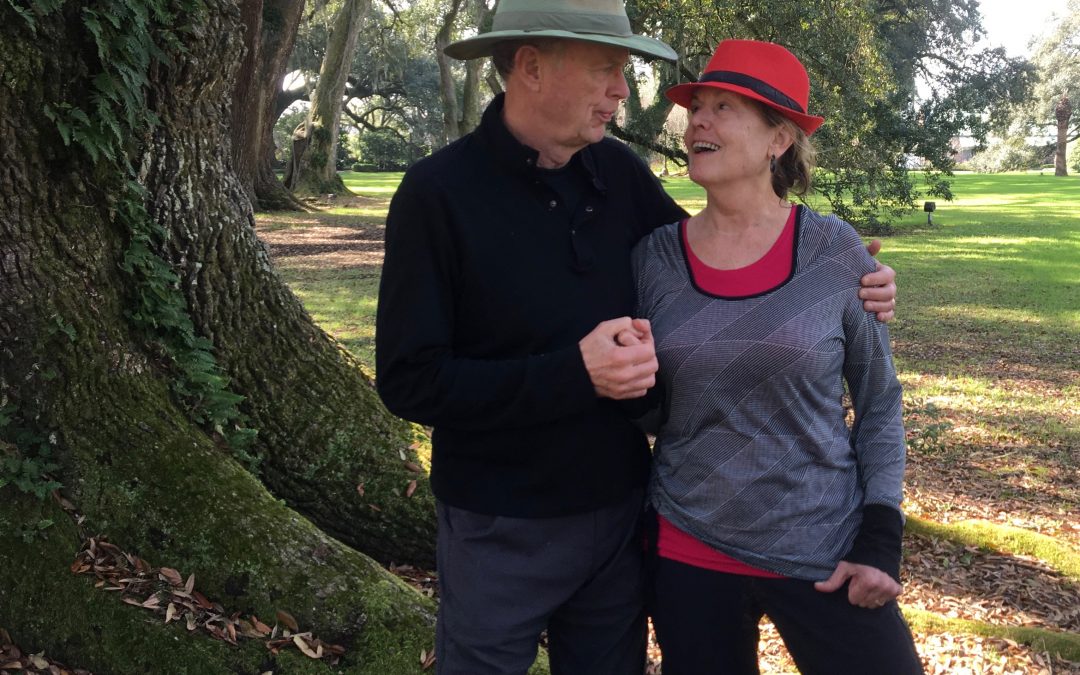In a healthy relationship, your partner is that special someone who meshes with you so well that you coexist in perfect harmony. You never have any disagreements, right?
Wrong.
Research actually suggests that the process of conflict and arguing can be beneficial to the health of an intimate relationship.
I agree. But the benefits of disagreeing might depend on understanding what the conflict is really about. Here’s a recent example from my own life:
Now that we’re retired, Ed and I get to choose where we’d like to live next. But we have a problem. He chooses the Southeast. I choose the Northwest.
Couples therapists would likely recommend some variation of a compromise — the idea being that if we learn to meet each other half way, we’ll both be happy.
Maybe.
If Ed and I were to compromise on this issue and meet each other half way without knowing what the conflict is really about, we might end up geographically half-way-in-between the two locations in the middle of Kansas! No offense to my many dear relatives in Kansas, but this is not where either of us wishes to live!
I want to share a less common approach to conflict resolution, which has led us to an unexpected and simple solution. It’s all about asking what it is that both of us truly want.
Here’s more or less how the conversation went:
Ed: I want to live in Chattanooga.
Marlena: Well, that just won’t happen. I hate the south. I want to live in Portland.
Ed: Portland? You’ve got to be kidding! Do you want to sit in traffic jams your whole life? And it’s gray and rainy for over half of the year. No way.
Long pause. Weighty silence.
Marlena: Why do you want to live in Chattanooga?
Ed: Because it’s sunny.
Marlena: Why? What does sunny get you that you want?
Ed: It makes me feel happy.
Ahhh.
Ed: And why do you want to live in Portland?
Marlena: Because Oregonians are the friendliest people on earth (it’s true, by the way, they are).
Ed: Why? What does that get you that you want?
Marlena: It makes me feel like I belong.
Here’s the thing. We say we want this or that, like we want to live in Chattanooga or Portland, but often what we really want is to experience how we feel when we get those things. Feelings like happiness or belonging.
Most of our desires are stepping-stones for achieving something deeper that we really want. But we often don’t recognize them as such. We take the stepping-stones as our ultimate goal and fight to achieve them. Like Ed and me arguing about Chattanooga versus Portland. These were simply sub-goals or stepping-stones for getting what we really wanted.
If we hadn’t taken the time to figure out what was truly important to us, we could have continued to argue about our sub-goals. And we may have reached a compromise around those sub-goals that wouldn’t have satisfied either of us.
Instead we asked a series of “why’s” (or variations of “if you had that, what would it get you that you really want?”) to begin to grasp what was truly important underlying the sub-goals. Only this way could we get to a compromise that led to what we both truly wanted.
The German philosopher Nietzsche once said, “He who has a why to live can bear almost any how.” When “how’s” conflict in a relationship, like ours did, we must get back to the “why’s,” the core reasons motivating our choices.
Here’s how focusing on the “why’s” helped us get past our impasse. If a place that is sunny and also friendly gets us both what we truly want — feelings of happiness and belonging — then our solution lies in finding a place that is both.
Have you ever heard of Bend, Oregon? The town boasts almost 300 days of sunshine a year, and the people are as friendly as it gets.
It may just be our healthy compromise.


We have had our share of serious disagreements. Certainly everything hasn’t gone my way, or hers. We have tried a lot of things and kept a few that seem to work for both of us and moved on mostly gracefully from those that didn’t. Along the way I think a key criterion for retaining everything from friends to hobbies has been that it be satisfying to both of us.
Bend may fit the bill.
Bend…poetically perfect! It is better to bend like a willow than to snap under the tensions of relationship storms. Love you guy!
I love it, Lorna!!! Perfect.